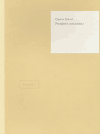
Survival of the Friendliest
Knihu koupíte v
1 e-shopu
od
500 Kč
Pokud se vám po kliknutí na tlačítko "Do obchodu" nezobrazí stránka knihy ve vybraném e-shopu, je třeba vypnout AdBlock ve vašem prohlížeči pro naši stránku.
Návod na vypnutí je například na adrese https://o.seznam.cz/jak-vypnout-adblock/#1.
Krátký popis
A powerful new theory of human nature suggests that our secret to
success as a species is our unique friendliness "Brilliant,
eye-opening, and absolutely inspiring--and a riveting read. Hare
and Woods have written the perfect book for our time."--Cass R.
Sunstein, author of How Change Happens and co-author of Nudge For
most of the approximately 300,000 years that Homo sapiens have
existed, we have shared the planet with at least four other types
of humans. All of these were smart, strong, and inventive. But
around 50,000 years ago, Homo sapiens made a cognitive leap that
gave us an edge over other species. What happened? Since Charles
Darwin wrote about "evolutionary fitness," the idea of fitness has
been confused with physical strength, tactical brilliance, and
aggression. In fact, what made us evolutionarily fit was a
remarkable kind of friendliness, a virtuosic ability to coordinate
and communicate with others that allowed us to achieve all the
cultural and technical marvels in human history. Advancing what
they call the "self-domestication theory," Brian Hare, professor in
the department of evolutionary anthropology and the Center for
Cognitive Neuroscience at Duke University and his wife, Vanessa
Woods, a research scientist and award-winning journalist, shed
light on the mysterious leap in human cognition that allowed Homo
sapiens to thrive. But this gift for friendliness came at a cost.
Just as a mother bear is most dangerous around her cubs, we are at
our most dangerous when someone we love is threatened by an
"outsider." The threatening outsider is demoted to sub-human, fair
game for our worst instincts. Hare's groundbreaking research,
developed in close coordination with Richard Wrangham and Michael
Tomasello, giants in the field of cognitive evolution, reveals that
the same traits that make us the most tolerant species on the
planet also make us the cruelest. Survival of the Friendliest
offers us a new way to look at our cultural as well as cognitive
evolution and sends a clear message: In order to survive and even
to flourish, we need to expand our definition of who belongs.
Výběr knih autorů
Brian Hare ,
Vanessa Woods
Zobrazit všechny knihy autora
Brian Hare,
Vanessa Woods
Naše tipy
- Právě probíhající akce a slevy na knihy
-
Knihydobrovsky.cz | do 27.08.2025
-
Dobre-knihy.cz | do 30.08.2025
-
Knihydobrovsky.cz | do 31.08.2025
-
Knihydobrovsky.cz | do 31.08.2025
-
Knihydobrovsky.cz | do 03.09.2025
-
Bookshop.cz | do 31.12.2025
- zobrazit všechny akce









